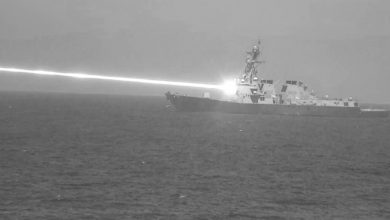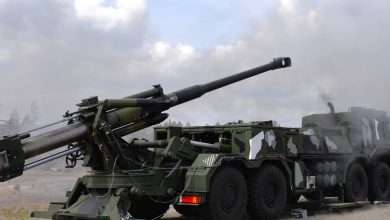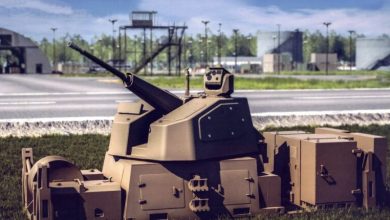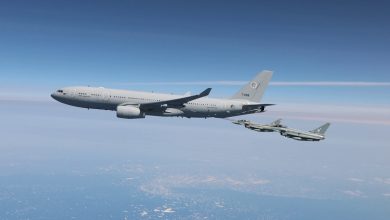Votes and war: Why are Poland-Belarus border tensions rising?
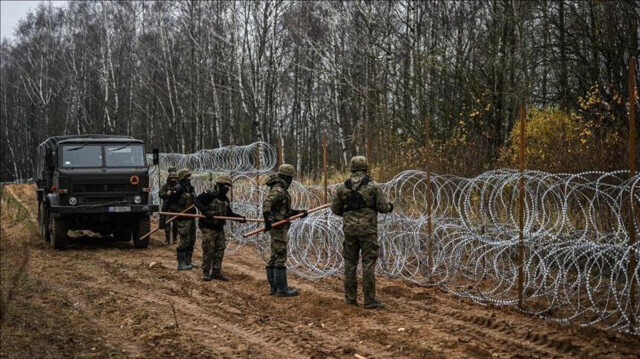
With Poland just weeks away from crucial elections, analyst says border standoff gives ruling party a pretext to act tough.
A buildup of thousands of soldiers and military exercises near shared borders are fueling tensions in Eastern Europe – and raising questions about what dangers could possibly lie ahead.
The war games were carried out by Belarus this month in a region near its borders with Poland and Lithuania.
More precisely they took place in the Grodno region, near the Suwalki Gap – a stretch of land running 96 kilometers (60 miles) along the Polish-Lithuanian border, also next to the Russian exclave of Kaliningrad.
In Poland, the government has set up a permanent military task force of 4,000 soldiers near the border with Belarus.
The task force is part of Operation Gryf, unveiled by Defense Minister Mariusz Blaszczak last week, that will eventually see 10,000 troops moving to the border area.
There is “no doubt” that Poland’s border is under threat, Blaszczak said, insisting that Warsaw’s plans have the sole purpose of “deterrence.”
Earlier this month, Poland accused Belarusian forces of violating its airspace. While Minsk denied the charges, Warsaw found support from countries including the US, with Secretary of Defense Lloyd Austin telling Blaszczak that Washington would back “Poland’s response to the Aug. 1 incursion.”
Poland is also concerned about the presence in Belarus of thousands of Wagner Group troops, who moved there after June’s aborted mutiny in Russia.
President Andrzej Duda recently upped the ante against Wagner, saying Warsaw does not consider it a private military group and that its actions are controlled by Russia.
However, along with the external factors and politics, some believe that Poland’s domestic concerns are also a factor in the growing border furor.
“No doubt both sides have genuine concerns about border security, and the migration of Wagner forces to Belarus is a hugely complicating factor. But I think the main factor behind the recent uptick in tensions is Poland’s domestic politics,” said Geoffrey Roberts, professor emeritus of history at University College Cork.
All for votes
According to Roberts, opinion polls show Poland’s Oct. 15 parliamentary elections “will be a close-run contest.”
“The Polish government is stoking up tensions in order to mobilize nationalist votes for the ruling Law and Justice (PiS) party and its hardline support for Ukraine in the war with Russia,” he told Anadolu.
The PiS, which has been in power since 2015, is gunning for an unprecedented third term and wants to be seen as tough on defense and security.
However, polling at around 35% to the main opposition bloc’s 29%, the PiS is unlikely to be able to rule without entering a coalition.
“This also helps to distract from disputes between Warsaw and Kyiv about Poland’s banning of cheap Ukrainian agricultural produce – a protectionist measure shielding Polish farmers, who are a mainstay supporter of PiS,” said Roberts.
In the context of Ukraine’s failing counteroffensive, he said there has been a “certain desperate hostility” in Poland’s attitude toward Belarus and President Alexander Lukashenko’s strong support for Russia.
However, Roberts said he does not see the current tensions leading to any “catastrophic outcome” unless Poland or Belarus directly involve themselves in the Ukraine war.
“In such a scenario a Poland-Belarus war is all but inevitable – a conflict that could prove to be more dangerous and escalatory than even the present war,” he warned.
Poland backs Belarusian opposition
Some in Poland believe the country must prepare for an uprising in Belarus.
These include influential figures like Waldemar Skrzypczak, the former Polish army chief, who said in late May that Warsaw should be “ready to support the divisions that will lead the operation against Lukashenko.”
Poland has been backing the Belarusian opposition since the 2020 presidential elections, when Lukashenko won in a vote that Western powers claimed was rigged.
The number of Belarusians with residence permits in Poland has more than doubled since 2020.
“Warsaw treats Belarusian political exiles as the people who will become the next generation of its eastern neighbor’s diplomatic service. As after 1989 in Poland, dissidents became ministers and ambassadors overnight. Some left prison, others returned from exile, but most of them found themselves crucial to the rebuilding,” Polish historian Jan Darasz told Anadolu.
“Predicting when Lukashenko’s regime will end is a fool’s game, but it will end one day and Warsaw is storing political capital for when it does.”
Lukashenko, meanwhile, has said he is seeking to improve relations with Poland, although some say the treatment of the 300,000-strong Polish community in Belarus has worsened over the past three years.
An incident this year that drew particular attention was a Belarusian court sentencing Andrzej Poczobut – a journalist and leading figure in Belarus’s ethnic Polish community – to eight years in prison for “inciting hatred” and “the rehabilitation of Nazism.”
Earlier this month, Lukashenko stressed the need to “talk to the Poles.”
“I told the prime minister to contact them. If they want, we can talk, mend our relations. We are neighbors and this cannot be chosen, neighbors are given by God,” Lukashenko said at an event in the capital Minsk, according to a report by Belarusian news agency Belta.
However, Polish Deputy Foreign Minister Pawel Jablonski dismissed the comments as “empty words.”
Lukashenko also issued an “appeal to Poles” this month, urging Warsaw to be “wise enough to refrain from armed confrontation.”
“Brothers Poles. We are neighbors. The Belarusian and Polish nations have hundreds of years of common history. There is no reason to treat the Belarusian land as Poland’s Eastern Borderlands,” he said in a statement on the third anniversary of Belarus’ presidential election, according to the Belta news agency.
“We would like to believe that you will not be deceived by aggressive propaganda. History knows many examples of how Belarusians repelled the invasion from the West. Take your time to experience it for yourself,” he added.


